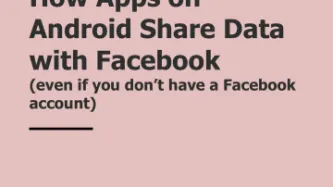Search
Content type: Long Read
When you buy a brand-new low-cost phone, it’s likely to come pre-installed with insecure apps and an outdated operating system. What this means is that you or your loved ones could be left vulnerable to security risks or to having their data exploited. Privacy shouldn’t be a luxury. That’s why we advocate for companies to provide the latest security features and privacy protections for both low- and high-cost phones.
Content type: Long Read
For many, browsing the internet or checking social media comes with its fair share of being targeted with ads selling “fad diet” subscription-based programmes, magic weight-loss powders, or promising a secret trick to lose weight quickly. Some of the products and programmes sold have been described as scams, with a very real impact for those suffering from eating disorders and those who fall prey to these ads. This is even more problematic due to the Covid-19 pandemic, which has seen the…
Content type: Long Read
In December 2018, Privacy international exposed the dubious practices of some of the most popular apps in the world.
Out of the 36 apps we tested, we found that 61% automatically transfer data to Facebook the moment a user opens the app. This happens whether the user has a Facebook account or not, and whether they are logged into Facebook or not. We also found that some of those apps routinely send Facebook incredibly detailed and sometimes sensitive personal data. Again, it didn’t matter if…
Content type: Report
A video presentation of the finding of this report can be found here, as presented at 35th Chaos Computer Congress (35C3)
Previous research has shown how 42.55 percent of free apps on the Google Play store could share data with Facebook, making Facebook the second most prevalent third-party tracker after Google’s parent company Alphabet. In this report, Privacy International illustrates what this data sharing looks like in practice, particularly for people who do not have a Facebook account.…



